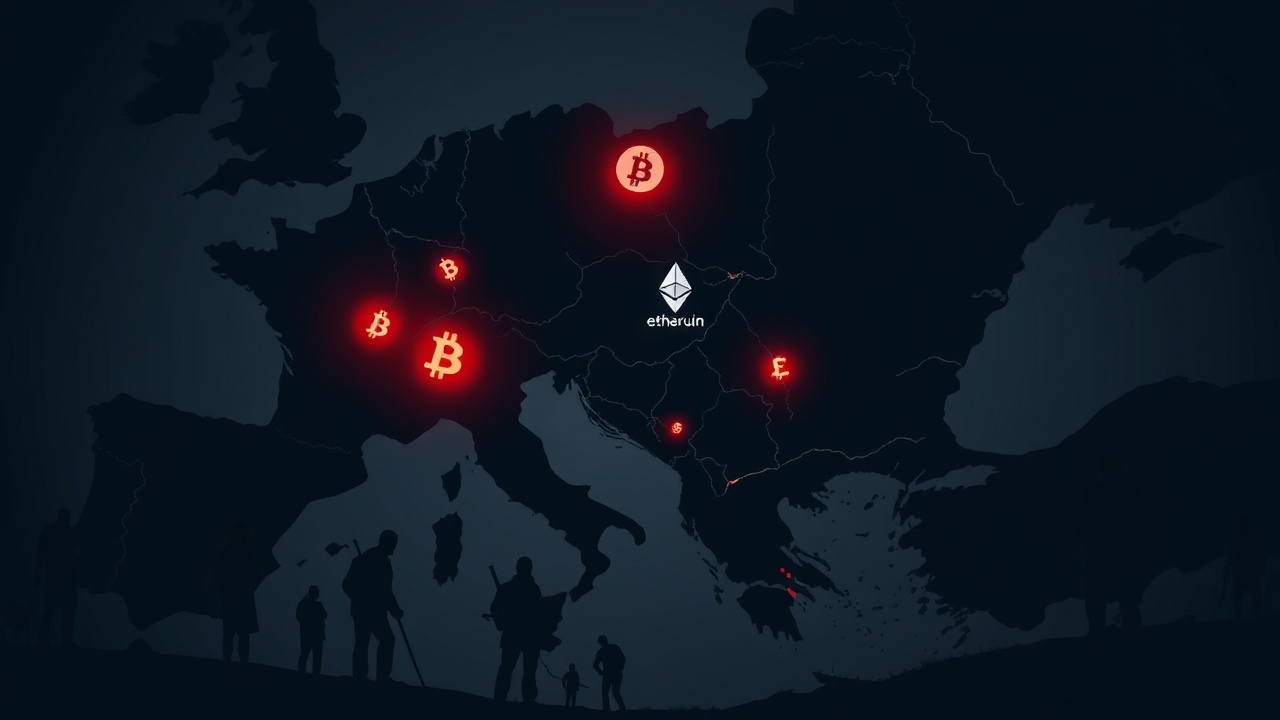Increasing Role of Cryptocurrency in Criminal Activities
A recent report from the Global Initiative Against Transnational Organized Crime (GI-TOC) highlights a troubling trend: the rising involvement of cryptocurrency in criminal activities within the Western Balkans, specifically in nations like Albania and Serbia.
Challenges in Confiscating Illicit Cryptocurrency
The research, detailed in this month’s risk bulletins, reveals that efforts to confiscate cryptocurrency linked to illegal operations pose significant difficulties for local authorities. To date, only three instances of such seizures have been documented across the countries of Albania, Bosnia and Herzegovina, Kosovo, Montenegro, North Macedonia, and Serbia.
Rising Transaction Volumes
The bulletin underscores that the illicit use of cryptocurrencies is dramatically rising alongside their legitimate applications, with transaction volumes in the region estimated between $25 billion and $30 billion. Notably, Montenegro has emerged as a significant hub for cryptocurrency transactions on dark web marketplaces.
Cryptocurrency and Drug Trafficking
Recent reports indicate that both Albania and Serbia have seen an uptick in the utilization of cryptocurrencies for laundering the proceeds of drug trafficking. According to Sasa Djordjevic, a senior analyst with GI-TOC for the Western Balkans, cryptocurrencies are increasingly integral to criminal enterprises. He pointed out that drug trafficking organizations, in particular, are leveraging cryptocurrencies to obscure profit movements, with suspicious transactions linked to these groups reaching values in the tens of millions of euros.
“Many of these transactions are processed through crypto wallets and are often funneled back into legitimate businesses,” Djordjevic noted.
Moreover, Djordjevic noted that many of these financial activities mirror established cocaine trafficking routes from Latin America into Europe, and connections have been made between local criminals and darknet platforms such as Hydra prior to its 2022 shutdown.
Legislative Challenges and Regulatory Frameworks
The report also foresees a continued rise in illicit cryptocurrency use as local law enforcement struggles to adapt to new technologies and establish robust regulatory frameworks. Currently, only three out of the six Western Balkan nations have enacted legislation regarding digital assets, with implementation still pending in at least one of them. Specifically, Albania, Serbia, and Kosovo are in various stages of legislation, with Kosovo having introduced its crypto laws in November, though necessary regulations for implementation are yet to be formalized.
Call for Action and Improved Regulations
Despite the European Union’s Markets in Crypto-assets (MiCA) regulation aiming for enhanced oversight, Djordjevic emphasized the challenges that remain, particularly since the Western Balkans are not EU members yet. The lack of regulatory frameworks and enforcement mechanisms leaves these nations susceptible to continued illicit use of cryptocurrencies.
The report mentions the three crypto seizures that have taken place recently, the latest involving assets tied to an Albanian crime syndicate during a coordinated operation between November 2024 and January 2025, which resulted in the confiscation of $10 million worth of cryptocurrencies along with other financial assets. However, Gi-TOC warns that without significant improvements in regulation and law enforcement capacity, this troubling trend is unlikely to change anytime soon.
To combat this issue effectively, Djordjevic advocates for governments to enact and enforce stricter regulations concerning the tracing and seizure of illicit cryptocurrencies while calling for law enforcement to invest in sophisticated blockchain analysis tools and specialized training.
Furthermore, he suggests that implementing recommendations from the Financial Action Task Force (FATF) and EU regulations will be crucial, especially for nations that have previously been listed on the FATF grey list, along with fostering greater collaboration with organizations like Europol and Interpol.

















